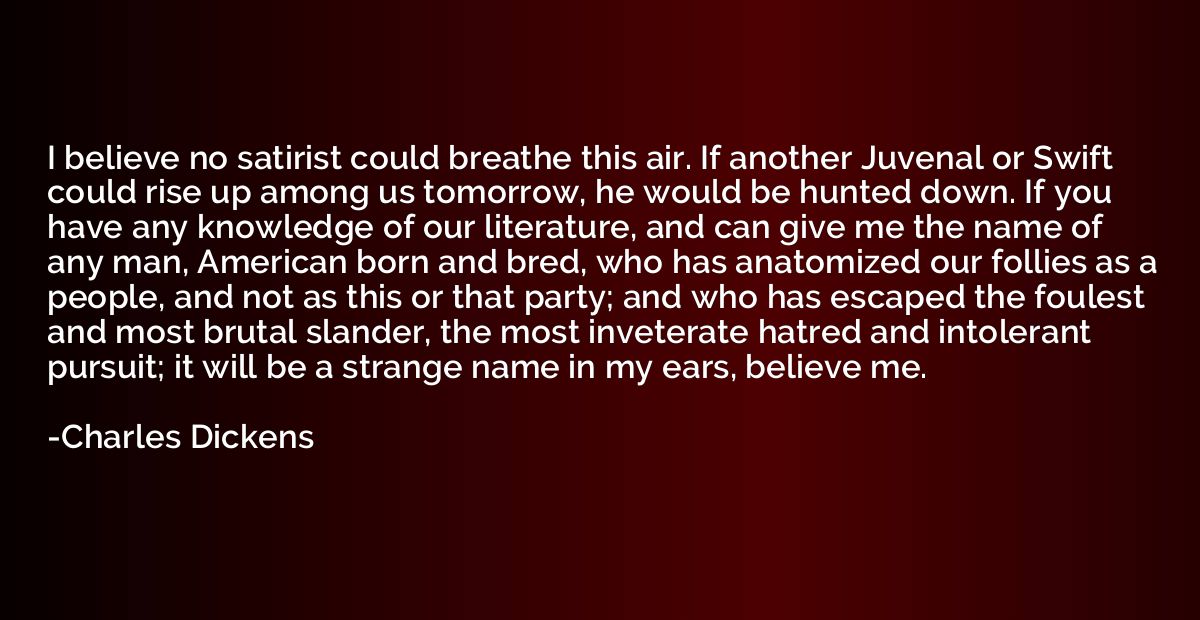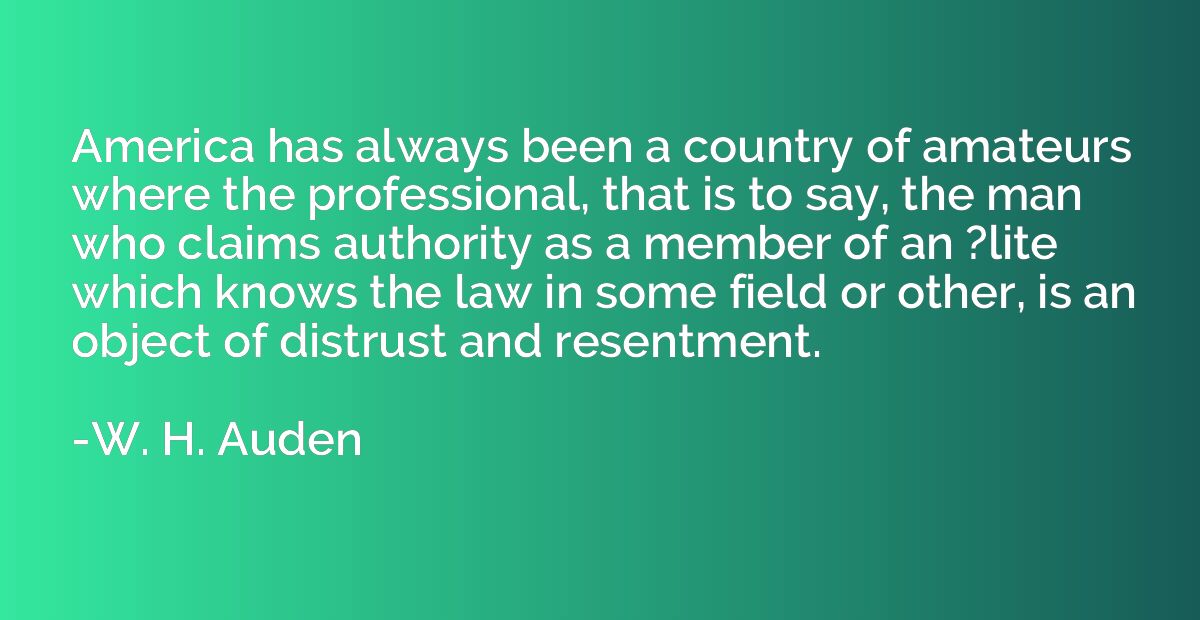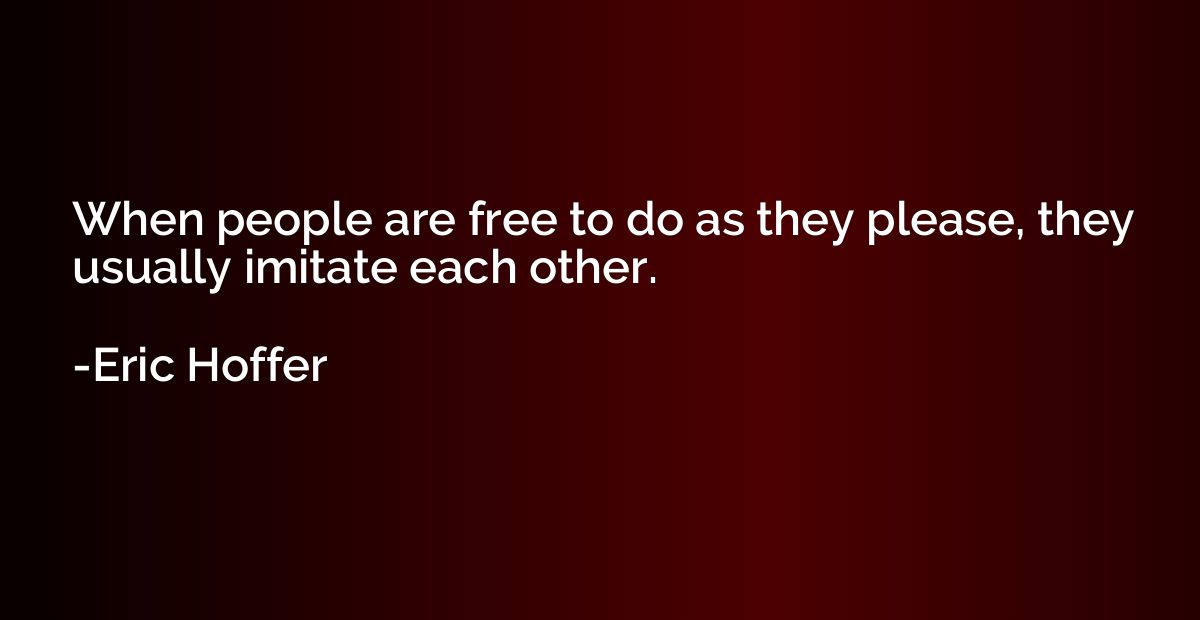Quote by Charles Dickens
I believe no satirist could breathe this air. If another Juvenal or Swift could rise up among us tomorrow, he would be hunted down. If you have any knowledge of our literature, and can give me the name of any man, American born and bred, who has anatomized our follies as a people, and not as this or that party; and who has escaped the foulest and most brutal slander, the most inveterate hatred and intolerant pursuit; it will be a strange name in my ears, believe me.

Summary
This quote suggests that in the present society, satirists who criticize and expose societal follies are not easily tolerated. The speaker argues that if a contemporary satirist were to emerge, they would face intense persecution and backlash. They challenge the reader to identify any American-born writer who fearlessly dissects the flaws of the nation as a whole, rather than aligning with specific political factions. The quote implies that such a writer would be subject to malicious slander and relentless pursuit, making it a rarity to find anyone who fits this description.














